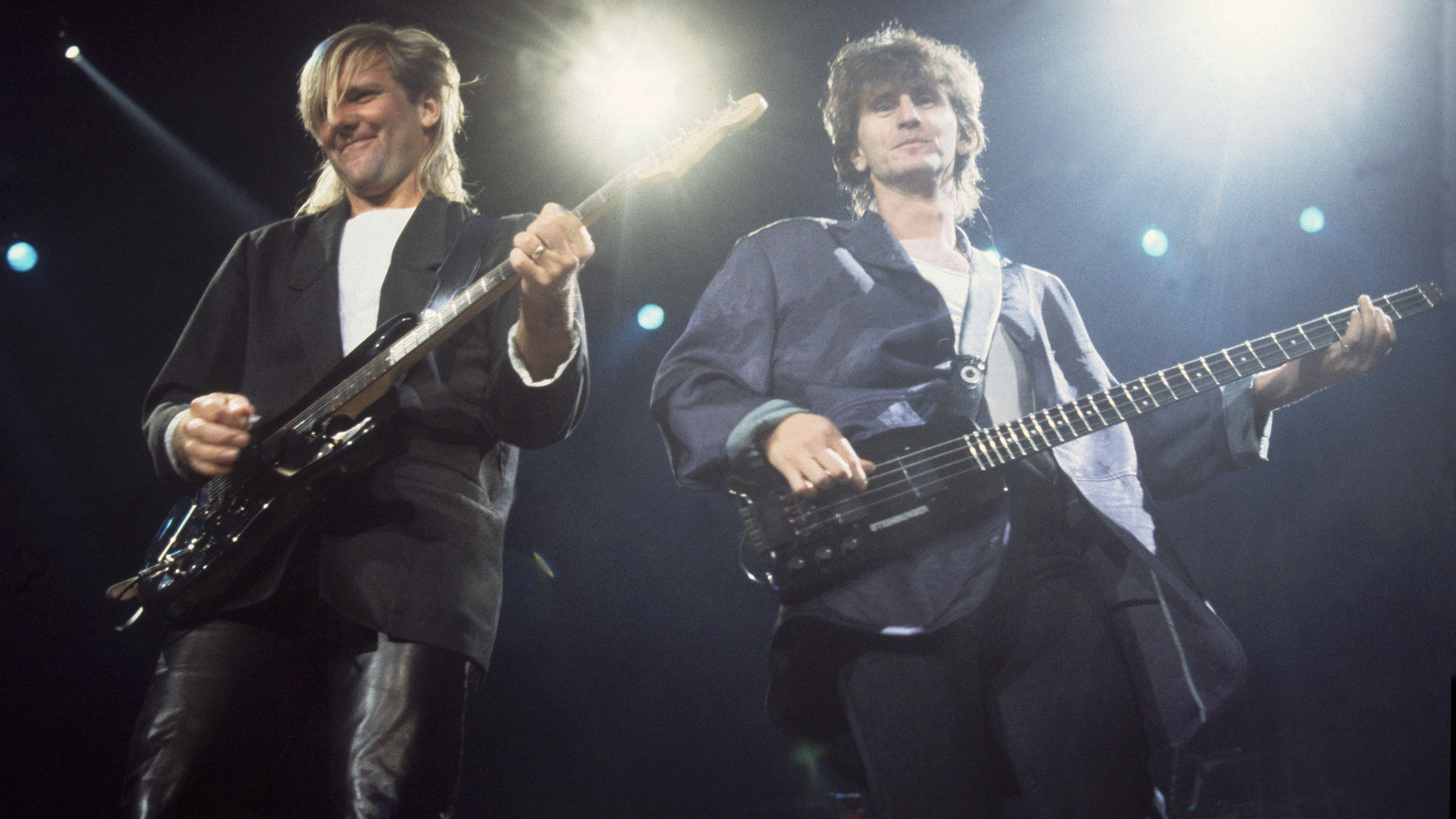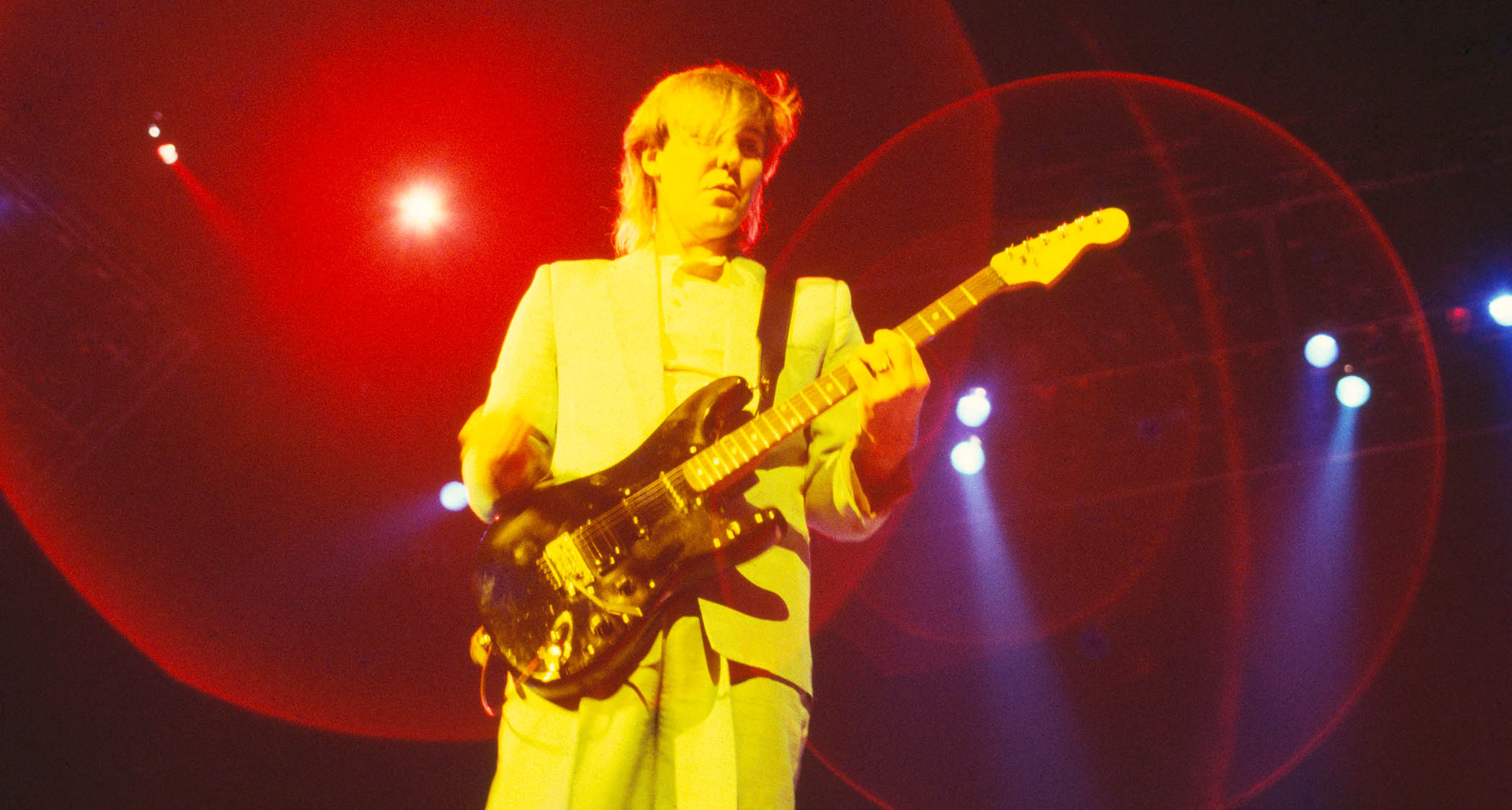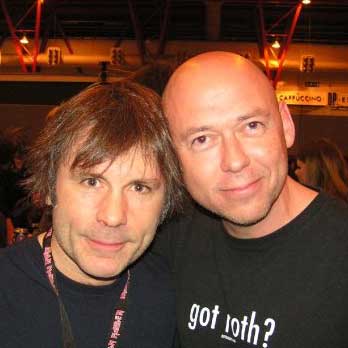“I never realised just how difficult it was for Alex. He had to rethink everything”: When Geddy Lee’s obsession with synthesizers made Rush guitarist Alex Lifeson feel sidelined in his own band
"The guitar suffered in a lot of the mixes," Lifeson said

Want all the hottest music and gear news, reviews, deals, features and more, direct to your inbox? Sign up here.
You are now subscribed
Your newsletter sign-up was successful
In 1981, Rush had the biggest selling album of their career with Moving Pictures. But if that decade began brightly, it soon became a struggle for guitarist Alex Lifeson.
In the mid-’70s, on their first three studio albums, Rush had operated as a power trio in the classic sense – Lifeson on guitar, Neil Peart on drums and Geddy Lee on bass guitar and vocals.
As a band always willing to experiment, they had first used synthesizers on the 1976 album 2112 – although the ARP Odyssey featured on that album’s title track was actually played not by a member of the band but by Hugh Syme, the designer of the cover artwork.
However, on the following album A Farewell To Kings, released in 1977, Lee played Minimoog as well as bass pedal synthesizers.
And it didn't stop there.
By the turn of the ’80s Lee’s love of synthesizers began to dominate the band’s sound on albums such as Signals from 1982 and especially Power Windows from 1985.
This left less room for Lifeson as a guitarist. And by the end of that decade, he’d had enough of it.
Want all the hottest music and gear news, reviews, deals, features and more, direct to your inbox? Sign up here.
In 2012, both Lifeson and Lee spoke to Classic Rock about that period of Rush’s career.
“I don't think I was pissed off,” Lifeson recalled. “I just saw that there was a shift in my role.
“At first, I was totally into it. I even played some keyboards, and I thought it was a really important and unique part of what Rush was becoming.
“There was this attitude: ‘Let's just push them up, they’re the new thing and they sound big and they sound cool.’ But the guitar suffered in a lot of the mixes. That’s what bothered me more than anything.
“I don't have anything against keyboards," Lifeson said. "I just thought that we needed to preserve the core of what the band is. It’s a three-piece.”
He admitted: “It was a challenge. I remember thinking, ‘What is this all about?’ But I did see the bigger picture: I knew we were going in a new direction and this was part of it.
“I thought: go with it and it will all work out in the end. So I did that.”
Rush’s preoccupation with synths might have pulled focus from the electric guitar, but Lifeson’s relationship with the instrument continued unabated throughout the ‘80s.

This was when played some of his most iconic guitars. When we think of Lifeson then, we think of the Hentor Sportscaster, the hot-rodded S-style that supplanted – for a time – the Gibson semi-hollows he used throughout the ‘70s.
The turning point was Power Windows. That was the first album where we actually put all these keyboard parts all over the tapes before Alex had the chance to put his parts down.
Geddy Lee
Veneman Music build him his first Sportscaster, a souped-up HSS S-style with a Bill Lawrence L500 rail humbucker at the bridge, a Floyd Rose double-locking vibrato, an aftermarket neck from Ottawa-based parts company Shark.
The Hentor Sportscaster was the inspiration for Lifeson’s recent collaboration with Godin, with two signature guitar replicas released already, and another to come (Lifeson tells us it will be black and named Free Will).
There were more, though. There was the even-more-80s Great White, which was, yes, white, but had the six-in-line pointy headstock finished in black, and was made by the Signature Guitar Company. Again, it had the Floyd Rose; Lifeson had been all in with the locking vibrato since the late ‘70s, when he had ordered a custom Les Paul with a Floyd from Gibson and started modding his Stratocaster.
For his part, Lee confessed that he was oblivious to Lifeson’s feelings at this time.
“Alex had to rethink everything,” Lee said, “and that's something I never really appreciated.
“I was so caught up with keyboards – loving those noises and the melodies and the ability to play those things. It was a fascinating period for me. But I never realised just how difficult it was for Alex. And he didn’t object to the direction we were going in.
“Alex went along with the ride. We wouldn't have made those records if he was upset about it. It’s just not the way we function.
“But the turning point was Power Windows. That was the first album where we actually put all these keyboard parts all over the tapes before Alex had the chance to put his parts down. So he had to figure out a way in, and I think that's when he first started resenting the keyboards.
"It made his job much more difficult, which in retrospect I completely understand.
“At the time, being the pro that he is, he just did his best. And I think he played amazing things on Power Windows.
“Alex rose to the challenge," Lee said. "But in a way he carried a bit of resentment forward from that point. He wasn't one to make a big deal of it, but I don't blame him for lashing out against that at a certain point.”
What Lee referred to as “our keyboard period” effectively ended with the 1987 album Hold Your Fire.
That was followed in 1989 by a more guitar-oriented record, Presto.
But in his interview with Classic Rock, Geddy Lee said he was proud of those ’80s albums.
“Power Windows is one of my favourite Rush albums,” Lee said. “Certainly it’s the most successful of the ‘keyboard period’ albums.”
He also referred to the band’s 2020 documentary Rush: Beyond The Lighted Stage and the comments from two famous fans – Rage Against The Machine bassist Tim Commerford and Nine Inch Nails mainman Trent Reznor.
“Everybody has their favourite period of the band,” Lee said, “and I thought it was great in the documentary to hear Tim Commerford speak out against the keyboards and then you hear Trent Reznor speak out in favour of them.”

Paul Elliott has worked for leading music titles since 1985, including Sounds, Kerrang!, MOJO and Q. He is the author of several books including the first biography of Guns N’ Roses and the autobiography of bodyguard-to-the-stars Danny Francis.
You must confirm your public display name before commenting
Please logout and then login again, you will then be prompted to enter your display name.



